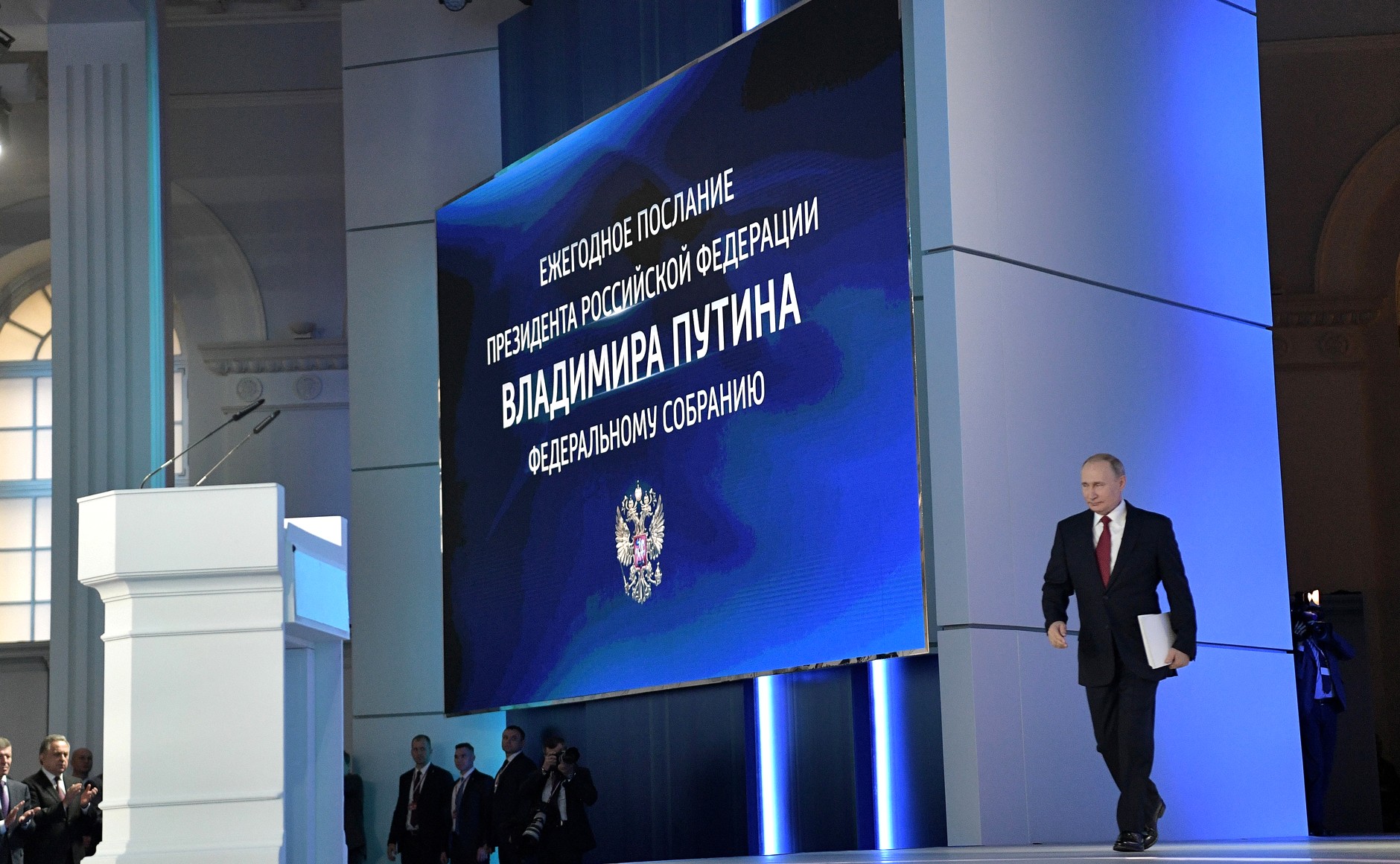 Image source: President of Russia
Image source: President of Russia
Putin’s Lifetime Plan for Power?
On January 15, the Russian government resigned after President Vladimir Putin announced sweeping constitutional reforms in the presidential address to the Federal Assembly. Putin is due to step down from the presidency in 2024. Current constitutional provisions limit presidents to two consecutive terms in office and does not limit the number of times a president can serve overall. Regardless, Putin has no plans to retire in 2024. Putin’s suggested changes to the Constitution of the Russian Federation are expected to maintain Putin’s political power for the foreseeable future.
Is a post-Putin Russia near? Not Likely.
Before the State of the Union address, Russian elites were anxiously awaiting a sign of stability in power in the possible post-Putin future. Rather than indicating he will fully cede power to a successor, Russia’s government shakeup signals that Putin will allocate power outside of the presidency so he can maintain influence once he leaves office. Andrew Kramer of The New York Times posits that Putin will not step away from the presidency without maintaining influence over the rigid Russian political system. Proposed changes to weaken the office of the presidency suggests that Putin intends to maintain the stability of the Russian government from another position within it.
Constitutional Changes at a Glance
- The State Council will become more powerful and be enshrined in the constitution
- Presidents will be barred from serving more than a total of two terms
- State Duma, rather than the president, will appoint prime minister and members of cabinet
- People who have lived abroad in the last 25 years are excluded from pursuing presidency
- Russian constitution will supersede international law
What is the State Council?
Vladimir Putin created the State Council in 2000 at the beginning of his presidency. This institution formally serves as an advisory body to the Kremlin with members chosen by the president and regional governors. The purpose and functionality of this governing body are not clear at present. Likely, Putin will use the State Council as an inter-institutional body to influence multiple levels of government and Russian corporations. With more power, the State Council could provide Putin with a mechanism to restrain and influence the agenda of a future president. Under the proposed changes, the Chairman of the State Council (Советом Федерации) will have the power to appoint the Attorney General of Russia and his or her deputies. Additionally, the Chairman will be able to appoint federal level prosecutors after consultations with the president. According to Reuters, constitutional changes will grant the State Council “broader powers to “determine the main directions of domestic and foreign policy.”
Strengthening the Russian Constitution’s Supremacy Versus International Law
Putin’s constitutional changes increase its precedence over international law. Carnegie’s Moscow Center says this change is “nothing short of a legal revolution.” By reemphasizing domestic law, the Russian government can maneuver around international agreements it has signed. For example, this change potentially gives Russia the power to ignore European Court of Human Rights rulings and other aspects of international law contrary to what was intended when agreements were previously signed. Putin ostensibly proposed this change to protect Russian sovereignty: “Russia can be and can remain Russia only as a sovereign state. Our nation’s sovereignty must be unconditional.”
Putin’s Possible Next Moves
After 2024, Putin has the flexibility to fill one of multiple roles in Russian politics. He can:
- Once again become Prime Minister and influence policy from behind the scenes
- Lead the State Council to supplant the Kremlin or manage political disputes, especially since constitutional changes drain power from the presidency
- Become speaker of the lower or upper parliament
A bill of constitutional amendments was unanimously supported by the State Duma on January 23. A public vote to approve these changes is scheduled to occur as early as April 2020. Considering Putin’s overwhelming domestic popularity and personal power, it is likely a constitutional referendum will usher in Putin’s proposed changes without significant opposition.





